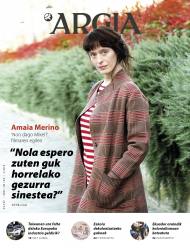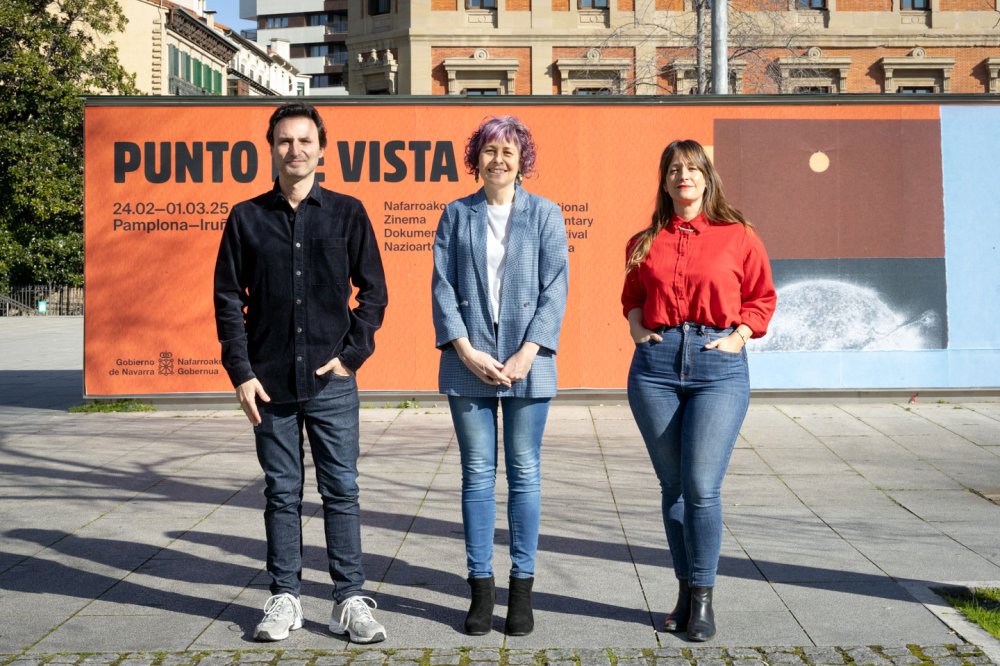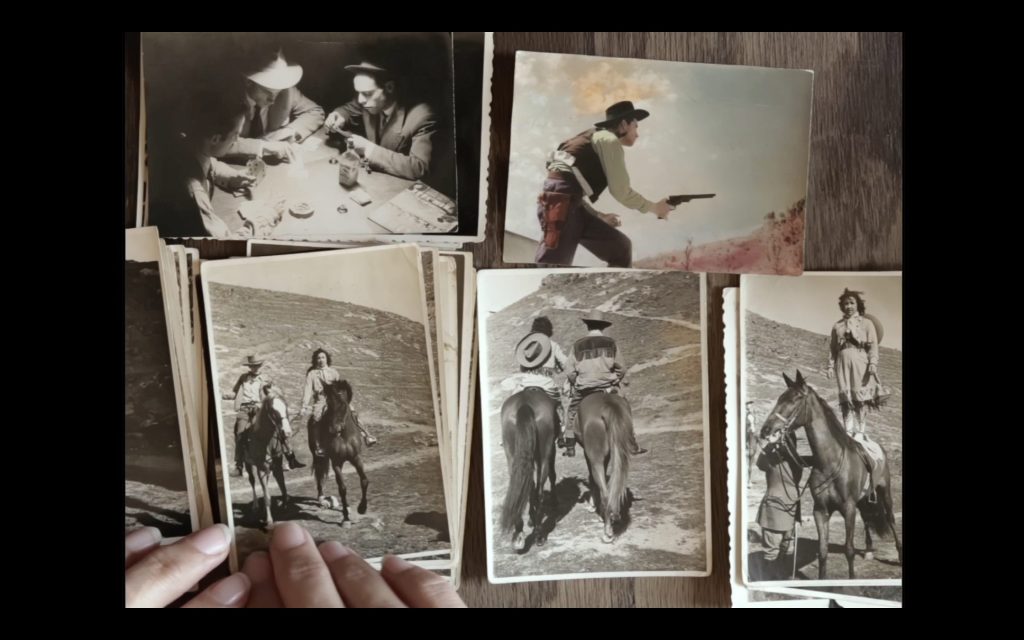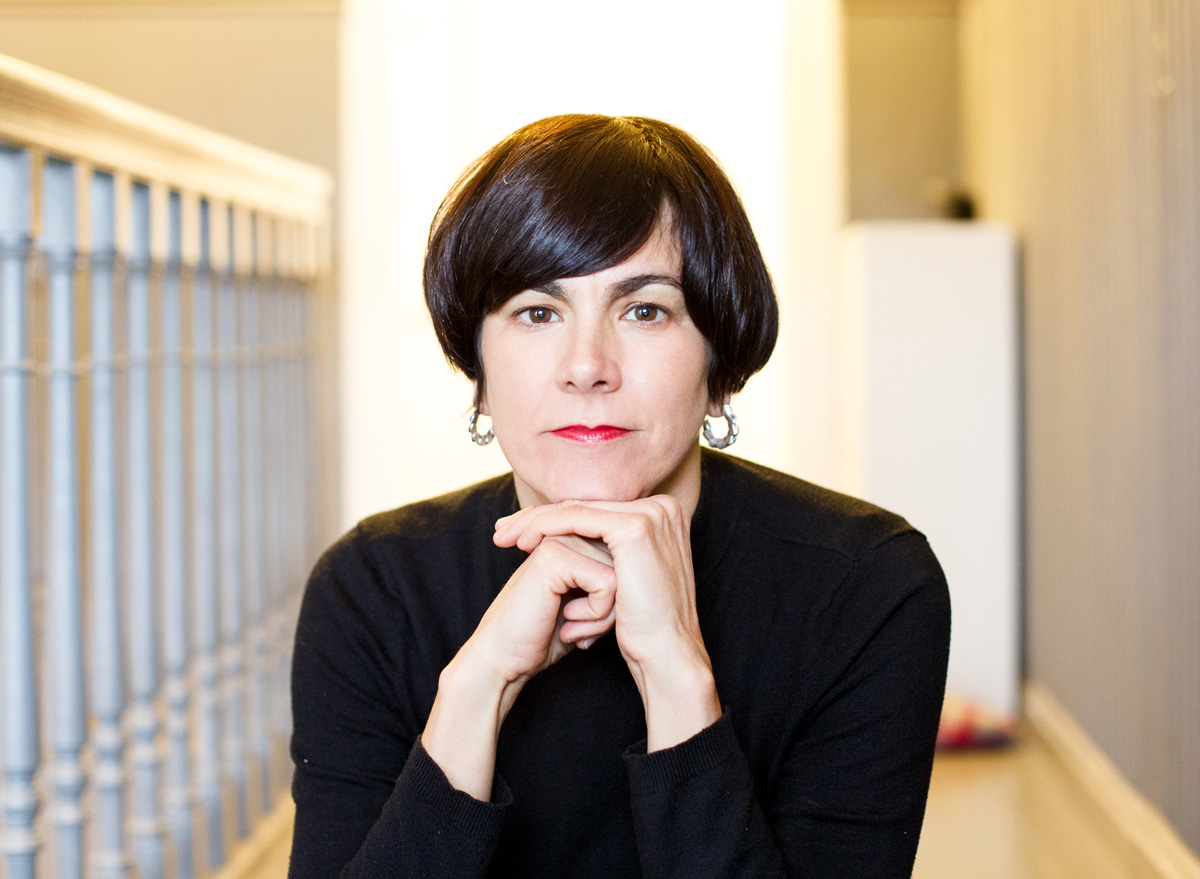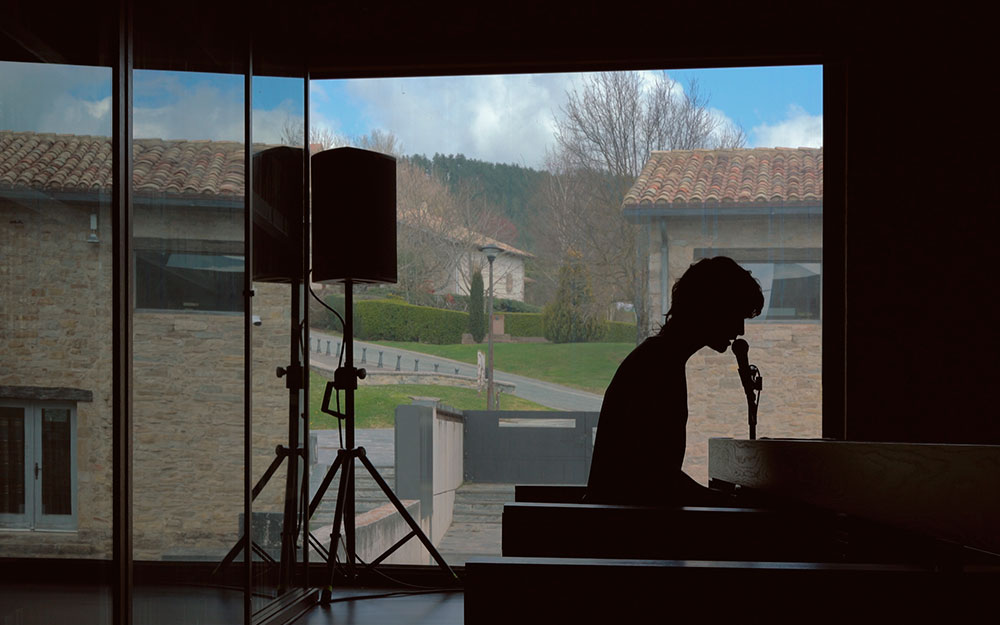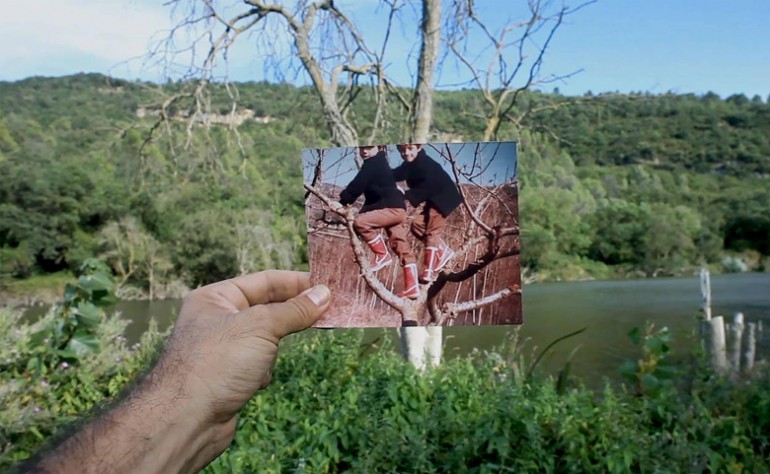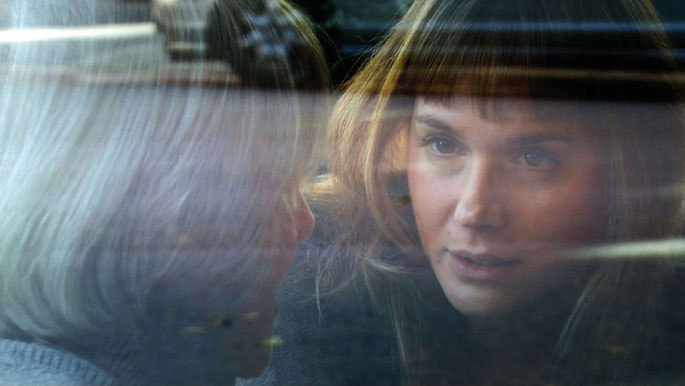There are also things that are not
- The opening ceremony of the Ikuspegi Festival was held at the Baluarte Palace in Pamplona on the 15th. The film Dardara by Marina Lameiro opened the film week, shot in the last tour of the musical group Berri Txarrak. One after the other, there have been countless films, followed by some of the jewels that have been offered in it.

This year’s thesis was made by the festival with the phrase “They are also things that are not”. The initiative that is organized each year in Pamplona towards March is not intended to be a collection of those known as classical documentaries, but, far from it, it seeks a contextualized point of view, experimental proposals and ruptures with fiction. The ambiguity proposed by the motto, therefore, comes perfectly to the festival.
In this thread, Lameiro's film is one of the localized views to which we referred. The director has done a job based on Berri Txarrak’s “Ikusi Arte Tour 2019” tour, but focusing on the fans instead of putting the team in the center. Thus, Lameiro portrays the relationships that emerge through music, as well as the varied profiles of Berri Txarrak's followers. The director has taken with great sensitivity the different subjectivities in images, from Germany to Mexico, through Japan and looking at the Basque Country.

Playing the different edges of the music hobby, the film achieves a relationship that can be very own and at the same time generalized. It is common and extensive as it collects a peculiar branch of art, but specific as it relates to a particular era, to that particular environment and to the group that has been so important for many. The tremor departs from the realization of the rockstar portrait, from the devotion of the protagonists or from the insistence of the morbid rumors among them. Instead, Lameiro glides from musicians who have become so well-known. With this movement he achieves a half-point work in which the documentary and the musical group meet. It's no longer a concert, or a movie. In this dialogue between the two, a space arises where, regardless of the fact that before these emotions live with the group, the viewer is able to understand what the filmed person feels. Then each one will relate it to their own experiences, either with another concert, with a work of art, with a book or with the film itself. Perhaps the fact that the director is not a passionate fan helps every spectator to relate to that reality, as if he saw it with his eyes. Lameiro’s great contribution is, in turn, an invitation that leads us to connect with the heterogeneity of the protagonists.
Within the “Landscape” section of the festival dedicated to Basque short films, Zerua blu de Lur Olaizola, Quebrantos de María Elorza and Koldo Almandoz, A portrait of N.B. by Peio Aguirre. and Agiña de María Sánchez. These are four attempts to honor their way that reflect an approach to someone else's life. In his second work, D. Lur Olaizola Mamaddi approaches the Ortzaiztarra, who in 1954 traveled by boat to New York on a seven-day, seven-night trip.
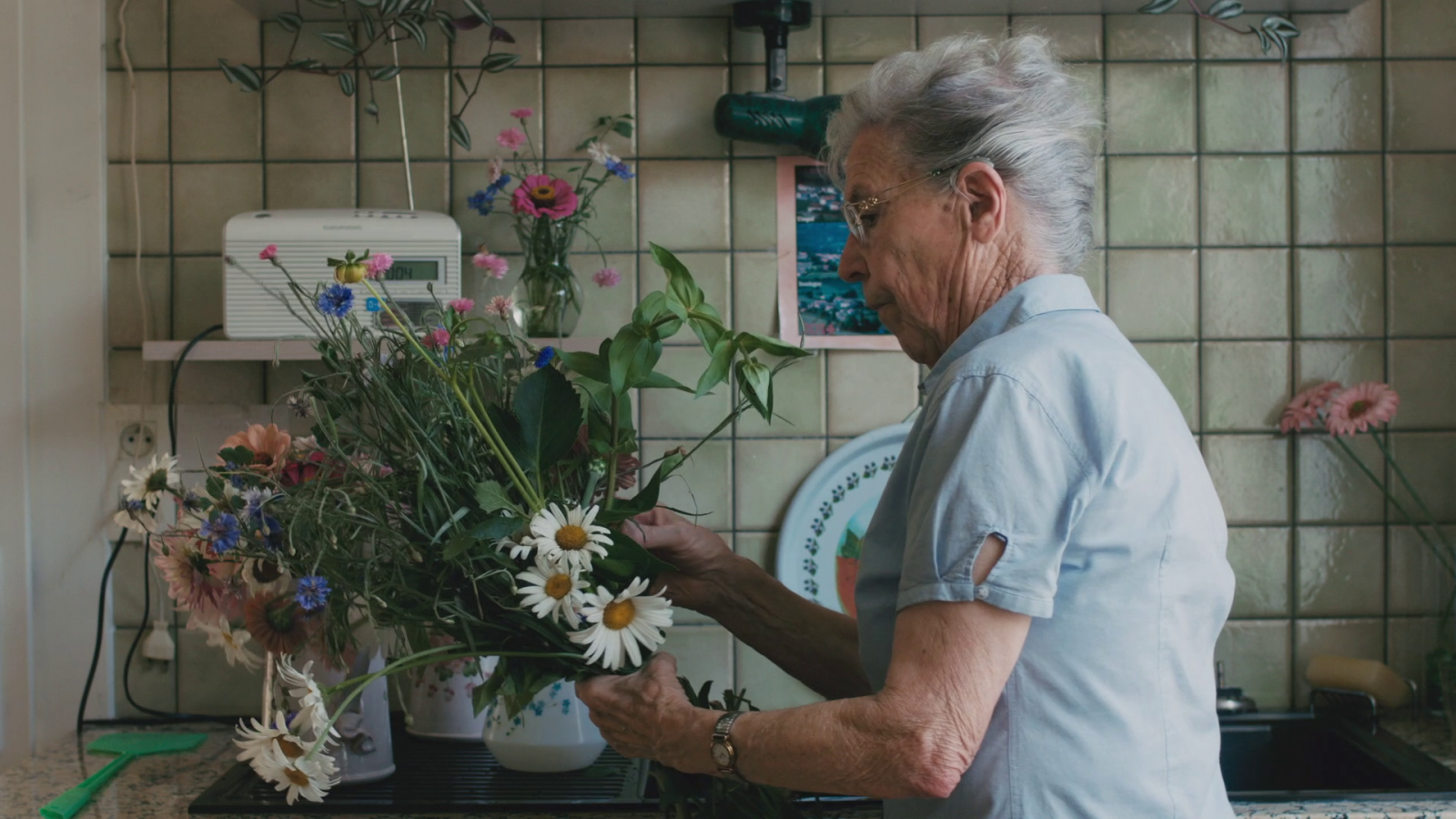
The connection to film opens the desire to travel with Mamaddi and make Olaizola's film. In a way, that's what both have in common. Olaizola knew Mamaddi's testimony in Uztaritz's archive, which led him to film: the protagonist, young at the time, saw in a film the imaginaries that were built around the United States, among them the convertible car and the soft sky. The passion for traveling behind these landscapes moved Mamaddi in search of a promestado world across the sea, and slowly came to reality as he knew it. The story is reported between the grandmother and the grandson, from one generation to another, in a subtle way, because the vital experiences are so collected. The movie is the way to collect a story, and that's how the memory, the file, the record and the future relate. The journey to the past can lead us to think about the agility of your dreams.
In the official section the documentary work In Ictu Oculi (Eyes between the intestine) by Jorge Moneo Quintana has once again been offered. The film has been awarded the public prize. After previous exposure of Scars, this brief shows a certain relationship with it in terms of progress and time. In this case, the director delves into the images of the archive to juxtapose the developments and demolitions of the emblematic constructions raised throughout history and create new meanings. It is a reflection on the lightness of the steps that have been left behind and their weight.

II. During the World War, Walter Benjamin wrote his thesis about history as a persecuted Jew. In it he highlighted the shadows of writing history, that is, the oppression of the version written by the winners. In his view, there was no sign of triumph at the same time that it was not a sign of heroin, and it could not be forgotten that the time of writing was a reading after the facts. This is how contemporary art has influenced many times: to wait for the break-up of the modern world and to write through the intricacies of its cracks. Moneo's film works with the traces left, playing with the obsolescence of his images. The deterioration of the photographs that constitute the record of the time is disappearing the monumentality of an era, which in turn is a antecedent of the current global project. As in post-modernity, the film is composed of the remaining ashes. That interval of the intestine allows the one who passes before us to happen, to feel almost without time the responsibility of our participation in it. It's the trick of the cinema itself, the integrity of the frames that pass their eyes on the part of the intestine, which we interpret as a movement, almost without realizing it. The rhythm of sound introduces us to the panorama of an unstoppable world work, without knowing how to get out of it.
The Ikuspegi festival was the last film festival we had the opportunity to see last year in person. After the pandemic situation, some festivals had to be suspended, some offered online and others have been carried out with a limited capacity. Several ephemerides have crossed the halls during these days, from within and from outside, swimming between what is there and what is not. Because there are multiple ways to document.
Otsailaren 24tik eta martxoaren 1era bitartean, astebetez 60 lan proiektatuko dituzte Punto de Vista zinema dokumentalaren jaialdian. Hamar film luze eta zazpi labur lehiatuko dira Sail Ofizialean; tartean mundu mailako lau estreinaldi eta Maddi Barber eta Marina Lameiro... [+]
Martxoaren 2an zabalduko dizkio ateak Iruñeak zinema dokumentalari eta hilaren 7ra arte gertuko eta urruneko obrak bilduko ditu Punto de Vista jaialdiak ikuspegi kritiko, sortzaile eta esperimentalez. Aste osoan egongo dira ikusgai lan ugari, baita zinemarekin zerikusia... [+]
René Le Henaff zuzendariak hiru dimentsioen teknikarekin esperimentatzeko Euskal Herrian grabatu zuen filma aurkitu du Josu Martinez zinegile eta ikerlari bilbotarrak. Euskadi filmaren lau emanaldi egingo dituzte martxoan, Bilbon, Iruñean, Donostian eta Baionan.
Oskar Alegriak Punto de Vista –lagunartean Ikuspuntu– zinema dokumental jaialdiko zuzendaritza artistikoa utziko du aurtengo edizioaren ondoren. Hala iragarri du jaialdiak bere webgunearen bitartez, programazioaren berri ematearekin batera. Emak Bakia baita filmaren... [+]
The Punto de Vista festival of Pamplona/Iruña last Saturday offered the director José Luis Guerin almost all day, before the closing of the tenth edition. In the morning he presented L’Accademia delle muse with good entry: “We’ve met more people than at the PNV event and... [+]
Guillermo Moncayo kolonbiarrak zuzenduriko Echo Chamber filmak lortu du dokumental onenaren saria, Ikuspuntu Nafarroako Zinema Dokumentalaren Nazioarteko Jaialdian.









